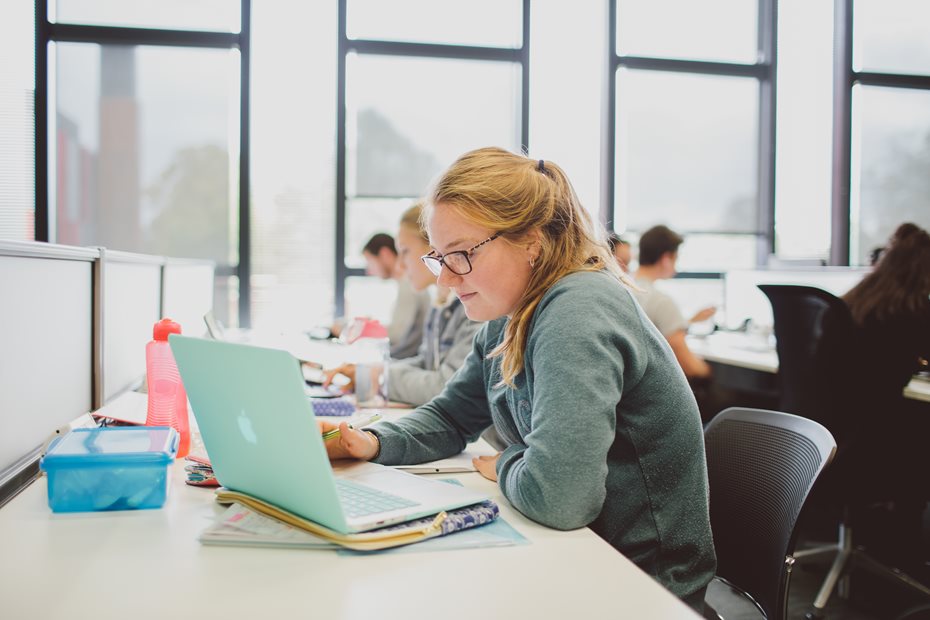Reference and avoid plagiarism
Search the Library
These words have almost the same meaning, which is to give details of where you found your information for an essay or assignment, whether from a book, journal article, web page, lecture, or any other source.
Why referencing is important
It is accepted practice in the academic world to acknowledge the words, ideas or work of others and not simply to use them as if they were your own. Failure to do this could be regarded as plagiarism
- to enable other people to identify and trace your sources quickly and easily
- to support facts and claims you have made in your text
- to show that you have read widely and use a variety of sources.
The first steps in referencing
As you find and use information from books, journals, web pages etc for your assignment, make sure you note down details about each source.
For almost all sources, you should note the author (might be an organisation), title and publication date. This should at least enable you to find the source again! It's not always reliable to just bookmark a website, because the link may break. You will need other information for a full reference, depending on the type of source (see next section).
If your source has page numbers, make a note of the page where you found the information. This is particularly important if you are "directly quoting" your source, since in this situation you will need to include the page number in the reference.
Cite Them Right has guidance on the basics of referencing, including citing commonly known facts, personal communications or confidential information, and AI tools, as well as setting out.
Identify the type of source you’re referencing
Are you trying to reference a book, a journal article, a web page, or something else? Knowing how to recognise the main types of academic sources is important, because each type of source needs different information included in its full reference. This is also crucial if you use an automatic reference generator, as it gives you the power to tell whether the reference has been generated correctly or if it is missing vital information.
Here are some clues to look for:
- For books and e-books, you might see a publisher, a place of publication, and maybe an edition number (LibrarySearch will show you these details).
- For journal articles, you should see a journal title as well as an article title, and a volume and/or issue number. Many will also have a DOI (permanent link).
- Other online sources could include newspaper or magazine articles, web pages, blogs or multimedia sources like videos - each are referenced slightly differently. Check Cite Them Right to see what kind of information you should look out for to tell them apart. You will need the URL and the date you accessed the page to include in the reference.
Check your references against the style guides for your subject, or look up more unusual types of sources on Cite Them Right to make sure that they look right.
Avoid plagiarism
Plagiarism is presenting or submitting someone else's work (words or ideas), intentionally or unintentionally, as your own. This is considered to be a form of cheating and may be subject to disciplinary action.
There are various forms of plagiarism including:
- Copying: using the same, or very similar, words to the original text (whether in a book, journal, website or any other source) without either acknowledging the source or using quotation marks. This also applies to images, pictures and melodies
- Inadequate paraphrasing: changing a few words and phrases from the original but retaining too much of the original structure and expressions
- Collusion: working with others but passing off the work as your own individual work
- Duplication: submitting work for one module which had been prepared for another.
How to avoid plagiarism
Cite Them Right Online has a useful section on avoiding plagiarism. You can also always contact your Academic Liaison Librarian for advice.
University regulations
The University Regulations and Policies give detailed information about all aspects of cheating.
Turnitin
Further help about plagiarism and Turnitin
Brookes has available an Interpreting Turnitin student guide video, which was produced by Mary Davis
There are a number of useful books in the Library about avoiding, and deterring, plagiarism. Search our LibrarySearch system, using plagiarism as a keyword.
Information about the text-matching tool Turnitin is available:
- Guidance on Turnitin for students (produced by the Centre for Academic Development)
- Staff guidance and resources for Turnitin
- Detailed guides, for both students and staff, are available on RADAR.
Academic integrity
Academic integrity is about good academic practice in your research, reading and writing, but it is also about how to spot and solve problems with plagiarism and other academic breaches in your work.
The Oxford Brookes Academic Integrity course covers the rules of plagiarism but also gives students useful advice on building confidence to avoid plagiarism in the first place. Students who have completed the course have been really positive about the benefits to them and their work.
The Academic Integrity course takes about one hour and can be completed by any Oxford Brookes student - foundation, undergraduate or postgraduate - and can be taken at any point during your time at Brookes, but the earlier you take it, the more you will benefit from what you learn. You can access the course through Moodle and start it whenever you want.
There is also a standalone module about Academic Integrity as it relates to use of AI tools.
Use online reference generators with caution
You may use an automatic reference generator such as Cite This For Me, but please note that none of these are perfect. Make sure that you set it up with the correct referencing style (there are a number of different Harvard styles, for example, so you should select ‘Brookes Harvard’ or ‘Cite Them Right Harvard’, which are the same style and correct for Brookes).
These tools often work well for academic sources like books and journal articles, but they can often produce odd looking references for other types of source (for example capturing details from login pages rather than the actual source).
Check your references against the style guides for your subject, or look up more unusual types sources on Cite Them Right to make sure that they look right, and then make adjustments.
EndNote is a more reliable alternative to these tools if you want to generate references automatically.
Reference management software
You may wish to consider using a reference management software system as a method of storing reference details and creating citations in your work. There are lots of different tools available and a guide on Wikipedia lists and compares many of them. Oxford Brookes University supports EndNote, which enables you to format references in various styles including ‘BrookesHarvard’ (matching the Library guide and Cite them right online). EndNote is freely available to all Oxford Brookes students and is the system that Library staff offer training on and will be able to help you with.
Library staff are always ready to help you with referencing. Visit the Library Help Zone, JHB Level 1 (Library Enquiry Desks at other Brookes libraries).
Brookes Harvard
Brookes Harvard is used by a large number of courses across the university.
The Brookes Harvard guide is a downloadable document outlining all the basics of referencing in this style, including templates for the most common types of source.
There is also a video playlist explaining this referencing style with examples.
APA
APA is used by some courses. Please check the APA referencing guide (available in Word and PDF formats) for details of how you should use this style.
There is also a basics guide available on the APA website to get you started.
Chicago
Some social sciences subjects use the Chicago style of referencing, based on footnotes.
You can watch the Chicago video playlist to get a good understanding of how this style works.
There is also a downloadable guide to footnotes and bibliographies for History students.
MHRA
MHRA is used in English Literature, Creative Writing, and Drama, Theatre and Acting. Download a quick guide to the MHRA style or view step-by-step notes and examples. |
OSCOLA
Law uses the OSCOLA referencing style, which allows appropriate citation of legislation and cases.
There is a downloadable OSCOLA handbook, as well as a video playlist explaining this style, and you can find more details on the course resource help page for Law.



